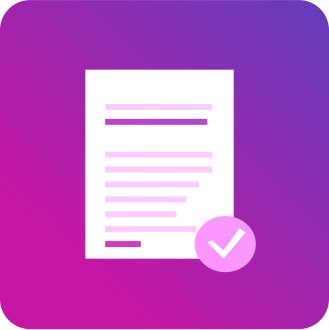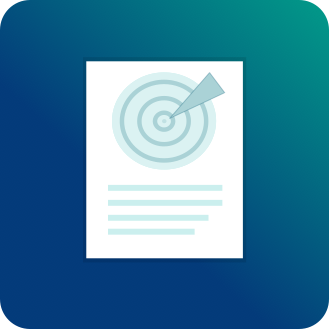Hey friends. It's Rohan with your latest Career Supplement, your personal mentorship email that takes a few minutes to read, but contains stuff that will speed up your career by years. |
In today's Mentor's Corner, we're talking about something everyone overlooks but is key to strong relationships in your career: showing appreciation. Do it correctly and you'll build stronger connections with your colleagues, employees or VIPs in your industry. Unfortunately, many get it wrong — but it's fixable, and I'll show you how. |
Plus, in this week's Pick-me-up, I'll run you through some short email tricks that will make you sound more confident. Later in the email, I've included some resume advice in case you're on a job search. Enjoy! |
Estimated read time: 6 minutes 5 seconds |
|
☕ CAREER PICK-ME-UP A 30-second bite-sized career insight. |
|
|
Today's pick-me-up is an excerpt from a LinkedIn post I made a few days ago — follow me here on LinkedIn if you aren't already: |
Surprisingly, simple words in our emails can subtly undermine our authority. Phrases like 'I think', 'sorry', or 'maybe' might sound polite, but they actually project uncertainty, not confidence. |
Here are some before-and-after examples to illustrate: |
Projects uncertainty: "I'm no expert but I think we maybe should do..."
Confidence: "We should do..." or "I recommend we do..." Overly apologetic: "I'm so sorry for the delay..."
Just right: "Thanks for your patience" Before: "Just wanted to check in, how is everything going with X"
After: "Checking in — what's the status of X?" Before: "Apologies for [missing your email / an error / contacting you]"
After: Pay attention to the times you say sorry for things that really aren't your fault. Then, try to actively reduce them.
|
Remove those phrases from your everyday vocabulary — and start being more direct — and you'll start to appear more confident in your communication. |
P. S. This was a snippet from one of my career strategy essays on LinkedIn. If you're not following me there, go here and hit the blue button. In just the past week, I've written about hacks that have made me a better public speaker, how to ask for a raise, and how to write with authority (like a CEO)…stuff you'll find relevant whatever stage you are in your career. Don't miss it — see you there! |
|
Today's issue is brought to you by... | Want to make your team 10x more efficient? Notion can help. It's the productivity, note-taking and project management suite that helps you manage your career, work and everything in between. And their new enterprise features help growing teams stay aligned while cutting costs. Learn more here |
|
|
|
📈 Mentor's Corner Insights put together by me or coaches who usually charge $750+/hour and mentor senior execs. One practical lesson a week that will make a measurable impact on your career, delivered right to you — for $0. |
|
|
The power of saying 'thank you' (+ why you need to say it more) |
Of all the tear-jerking moments in cinema history… |
One of the strangest comes from the climactic scene of the movie, Lord of the Rings, The Return of the King. |
In brief: |
At the end of the trilogy, Middle Earth has been saved, and the lead character, Aragorn, fulfills his destiny by becoming the King of Gondor, and marries his true love, Arwen. |
At the coronation, the couple walk down an aisle, paying respects to those who helped them on the journey. |
Finally they come to the four hobbits, who bow before the newly-crowned King. |
That's when Aragorn says: "My friends, you bow to no-one." |
And he gets down on one knee, a gesture which everyone else follows, leaving the four tiny hobbits left standing. |
|
The music score hits, and it's almost impossible not to feel a wave of emotion. |
But why? |
Nothing "sad" happens. Yet it leaves even the hardest of men a sobbing mess. |
One word: Gratitude. |
At his most triumphant, Aragorn passes the spotlight over to the hobbits as a genuine thanks. |
Which brings me out of Middle Earth, and back to your Career Supplement: |
If gratitude is this powerful… |
Are you showing it in your career to the people who've helped you? |
Or are you strangling your career with ingratitude, cutting off the branches of goodwill people have offered you? |
It's an important, yet rarely discussed topic, so today I'm going to share a few ways to say "thank you" in your career. |
Here we go. |
🙏 Be genuine. |
This is why the LOTR scene hits like a truck - Aragorn is completely genuine. You must do the same. Remember, people can detect insincerity a mile away. |
|
🗝️ Be specific |
If you just say 'Thank you', it can come across as insincere or a hollow comment. Because, what are you thanking them for? |
So, be specific. What has this person done for you? |
Bad: "Thank you for the help!" |
Good: "The advice you gave me on how to be more assertive at work really struck home. It made me realize where I'm being too passive and helped me take charge during our last team meeting. Thank you!" |
By the way, if you're a manager, be specific when giving compliments to your employees too: |
"Carlos, your insights on the Phoenix campaign were spot-on. Thanks for steering us in the right direction." |
🔄 Don't expect (or hope for) anything in return |
Hot take: |
Most people only say 'thank you' in their careers because they expect something in return. And there lies the problem - people can always see you circling back. |
Here's the mindset we want to adopt instead: |
You're not trying to get something. You're trying to show something. |
It's a small mental shift, but it makes a difference in how you come across. |
Obviously, expressing genuine appreciation has its own positive impact on your relationships. When you show appreciation without expecting anything in return, people will be more likely to want to help you again in the future. But remember — that's just a side effect, not the main goal. |
⚡ Late is infinitely better than never |
Often, what stops us from saying 'thank you' is thinking that we've missed our chance. |
But actually, a delayed thank-you (sometimes years later) is better, because with hindsight you can appreciate the value of what that person's done for you. A reader sent me this some time ago (thanks Liz!): |
"Take the trouble to thank people, however long after the event. I recently had a fantastic email 20 years after providing guidance. The author of it explained how beneficial my work had been throughout her career. What an email!" |
|
🎯 Keep the thank you appropriate |
This is a mistake a lot of people make. You've got to match the level of your thank you to the help you received. |
An overly dramatic thank you for a simple favor will seem insincere and make it seem like you just dish out your thank you's. And a casual 'thank you' for something that someone went out of their way to help you with comes across as dismissive. An example: |
Too much: "I can't thank you enough for proofreading my report! I'll never forget your kindness. What would I do without you!" |
Good: "I appreciate you taking the time out to proofread it. I needed that second opinion." |
I remember a boss I had who would often say, "Rohan, you're an absolute superstar," for mundane tasks like forwarding an email. His intentions were good—he wanted to make me feel valued, and at first, it did make me feel special. |
But after a while, his over-the-top thank yous began to feel so diluted that even when he meant them sincerely, they didn't carry any weight. |
That being said, if someone has literally changed your life, tell them they did and don't tone it down. The point is to be genuine. |
|
I'll end this piece with a challenge (should you choose to accept it!) |
Who has made an impact on your career? Your parents? A sibling? A mentor? A teacher? A friend? Someone you follow online? |
Write them a short note to say a specific 'thank you'. By email, LinkedIn, text, pen & paper — it doesn't matter what you use. |
Chances are, like the hobbits, it'll be the first genuine thanks they've ever received, and it'll be something they'll cherish for the rest of their life. |
If this resonated and you're the type of person who puts their career as a priority, follow me on LinkedIn here. I'll cover a wider range of career topics there — stuff that doesn't fit in these more formal mentorship emails. My goal with it is to give you stuff that will help you look at your career from different perspectives, so you end up more rounded as a result. |
|
From Our Team Tried all our AI tools? | Want a better resume? Upload it to Score My Resume and get expert feedback, instantly. You'll find out if and where your resume falls short. Get your resume review |  |
| Want to make your LinkedIn profile work for you? LinkedIn Review will show you how to optimize it so you get more leads, jobs and opportunities through LinkedIn. Optimize your profile |  |
| Want to get past the ATS? Targeted Resume will check if your resume has the right keywords. Target your resume |  |
|
|
|
|
|
|
This guy's LinkedIn profile is hilarious |
|
I spat out my drink at the first bullet point under Account Manager at Netflix. |
🤣 (link if image doesn't load) |
|
🔎 Speed Up Your Job Search One actionable piece of advice to help you hack your job search. |
How to list projects on your resume |
Read the full article here (it has some good examples too). |
If you don't have enough relevant experience in the industry you're applying to — perhaps you're a career changer or a student — it's a good idea to include a projects section on your resume where you highlight personal projects, side hustles or volunteering work. |
For example, if you're trying to break into digital marketing and don't have marketing experience, you might use a projects section to describe how you created a personal website and used Facebook Ads to market it. |
🎯 If you're working on your resume, I'd really recommend using a tool like Score My Resume. It'll scan your work experiences and projects (if you added any) and give you instant suggestions on how to rewrite them using AI and recruiter advice. Try it now. |
|
|
If you're new here, let's get the intros out of the way. |
I'm Rohan. Six years ago, I found myself frustrated with the sea of misleading career advice online, so I started Resume Worded. The goal was simple: provide guidance that actually works. |
But resumes were only the tip of the iceberg. There was a lot of clichéd, generic career advice out there. So, I started this email series. Each week, I talk about real career strategy, informed not only by my experiences but by my conversations with industry leaders, senior coaches who train CEOs, and people with way more experience than I have. |
Every email you receive is written by me, not a ghostwriter. I'm here, on the other end, reading your replies. |
Until next time, |
|
Rohan @ Resume Worded |
|
|
Liked today's email? |
Reply to this email with a simple "Yes" if you found it helpful. |
I tally up all the yes'es I get, and keep track of which ones resonate most. I use that data to figure out what to write about in my future emails. |
And if you've been a long-time reader, I'd appreciate if you write us a review. Here's a review of last week's issue: |
|
Thanks a mil for the thoughtful review, Emily! |
And here's the link to that essay I wrote on burnout if you missed it — it seemed to resonate with a lot of people. |
|
P. S. Were you forwarded this email? Join 1+ million smart professionals who read my emails to get ahead in their careers. Get the next one by adding yourself to my contacts here. My emails aren't posted anywhere else (and there's no archive of past issues either) — so if you want to make sure your career stays on track, don't wait around.
P. P. S. To make sure you receive each email in your inbox, A simple way to make sure you get each email is: |
If you're using Gmail, hit the 3 dots at the top-right corner, and choose Move to -> Primary. Or drag this email to Primary if you're on your computer. If you're using Apple Mail, tap on our email address at the top of this email (next to "From:" on mobile) and click "Add to VIPs.".
|
|
Comments
Post a Comment